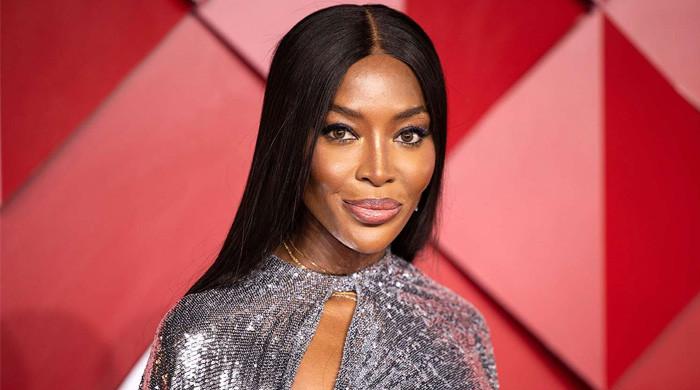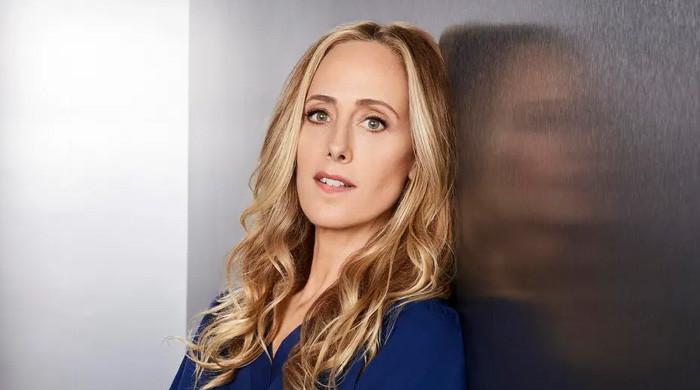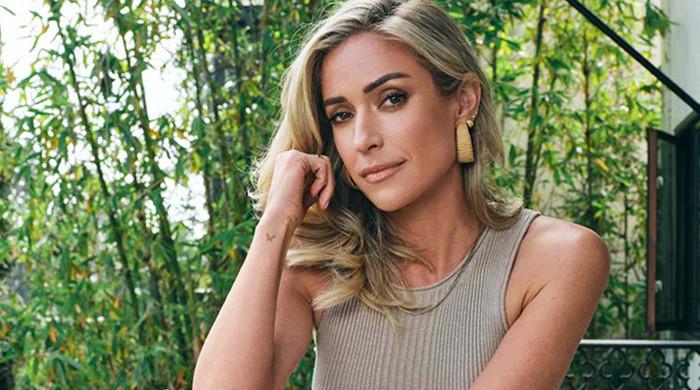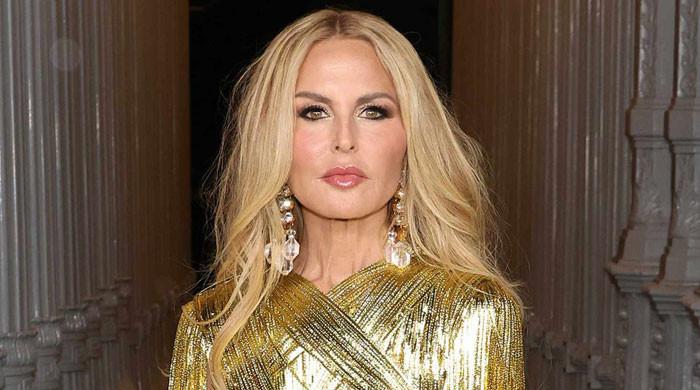Mahira Khan, Faiza Saleem explain what it means to be a woman in Pakistan
Nighat Dad and Hajra Khan were also part of the panel discussion
February 19, 2019
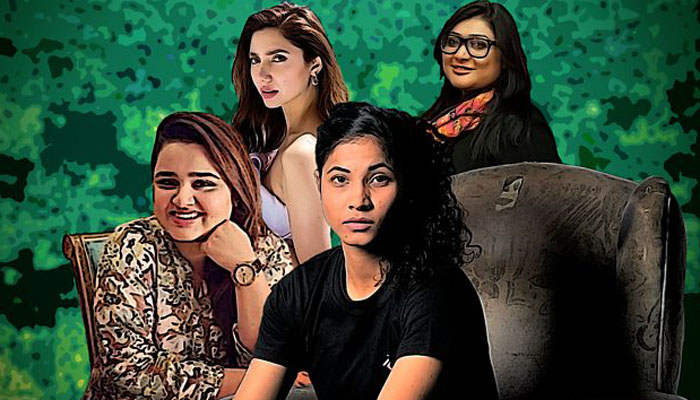
KARACHI: A panel discussion by BBC World Service was held in Karachi last week and leading Pakistani women from different fields were asked ‘what is it like to be a woman in Pakistan?’
The panel discussion held at the Institute of Business Administration (IBA) in Karachi was moderated by ‘The Conversation’ presenter Kim Chakanetsa and included actor Mahira Khan, comedian Faiza Saleem, lawyer-cum-activist Nighat Dad, and national football team captain Hajra Khan.
The leading women tackled topics such as cultural stereotypes, body-shaming, cyber bullying and losing family to passion. Here are some excerpts from the panel discussion:
Mahira Khan
Actor Mahira Khan said she’s the “poster child for cyber bullying”. “It's hurtful.”
She explained, “I think about myself as someone who has enough faith and confidence in myself that I understand that these are just 50 bored, faceless, nameless, good-for-nothing people … but again, I am older, I am in a stage in my life where I can think like this.”
"I could win an award and they'd drag me down. I could wear sleeveless and [they'll say] I'll go to hell and take everyone who loves me to hell with me,” she added. “My only advice to you is that these people do not exist. It's not real."
Mahira further said "I think when you get that much love and when you are that popular, it comes with very, very high expectations. And contrary to what people think, our lives are very tough. They do not know how it feels to get into character, to get out of character and still be smiling for the cameras, no matter what has happened in your life. You life could be falling apart but for your audience you have to put up a show. I think that is the hardest thing because the show is constantly on."
However, the actor shared, "In my private moments it all does come crashing down because the circus is over but you're still the clown. I've suffered from anxiety and a lot of other things. It's a tough place to be in, I'm sure its the same for everyone in such high pressure fields but the flip side to that is when you love what you do and honestly there's nothing better."
Faiza Saleem
Comedian Faiza Saleem, who recently tied the knot and has been vocal about body shaming, shared that for her to be a woman in Pakistan means that she might be “breaking grounds in comedy” but is still “expected to look a certain way in order to feel beautiful, to feel worthy”. “I feel it's a huge part of my life and the lives of many other Pakistani women."
In response to a question, Saleem said it is not just the middle-aged women but also male relatives that pass comments on one's body. She explained that these "aunties and uncles" are "people who have absolutely nothing to do with your life.”
“An uncle once said to me, and my husband was around, and he goes: Oh Beta, I really hope that you’re trying to lose weight for your wedding,” she recalled.
The comedian also shared that she feels male comedians are judged differently. “I do feel male comedians are judged differently, I make it a point to go on their Facebook pages and check the comments and they are so different from the comments I get or other female comedians get. [Our comments are] about how we look and how we dress, whereas their comments are about their comedy. I don't expect people to love my comedy, they could hate me, but don't say, 'Oh, you're fat’."
Nighat Dad
Lawyer-cum-activist urged people to make their password strong and to not share them with your partners. “Most of the times we receive calls saying that their account is hacked but we find out that it’s not hacked, it’s owing to password sharing. Because it’s the key of trust in your relationship that’s how people get passwords of each other,” she said. “Your password belongs with you, not your partner.”
"70% cases we receive at the helpline are related to data young people share with each other, so when relationships or friendships don't end up on good terms, the other party misuses that data mostly they're intimate videos and they blackmail the other person that they'll leak the information online," she added.
Urging people to make strong passwords, Dad said it is a wrong practice to have the same passwords for Facebook, Instagram, Snapchat, Twitter, and emails.
Hajra Khan
Hajra Khan, who is a national football team captain, shared the dilemma female athletes have to face between choosing the love and passion for a sport and their family. "I know a lot of female athletes who are not allowed to play a sport professionally but then they still strive, there's a lot we leave behind in the process."
The national football team captain shared that when newspapers wanted to feature her and they would go to her relatives they would call up her parents saying "it's a disgrace to our family". "They'd ask my parents, 'How could you do this to your child?' and my dad would stand up for me and would tell them to back off."
"For me they didn't exist. For four years they stopped speaking to us but my dad would tell me to focus on what I'm doing and so I did. I was made captain when I was 20. I'm playing for clubs in the Maldives, in Germany. They then started slowly trying to reach out on social media. They'll add you, tweet to you, try to make conversation, put up childhood photos and now they're fine," she added.
Hajra said "that's how it works for every woman in this country". "Even if you want to be a doctor but choose to be a neurosurgeon people will tell you it's too difficult. Stop dragging women down."
"In the process of who you want to be, to achieve your dream, you may lose a lot of family. But they can come back," she added.
Further, she said, "If a cricketer is not being asked to play in shorts, a footballer should not be either."
Regarding whether a footballer on her team wearing a head scarf ois an issue, she said, “We don’t consider these things a problem a anymore. They are as confident as we are.”




